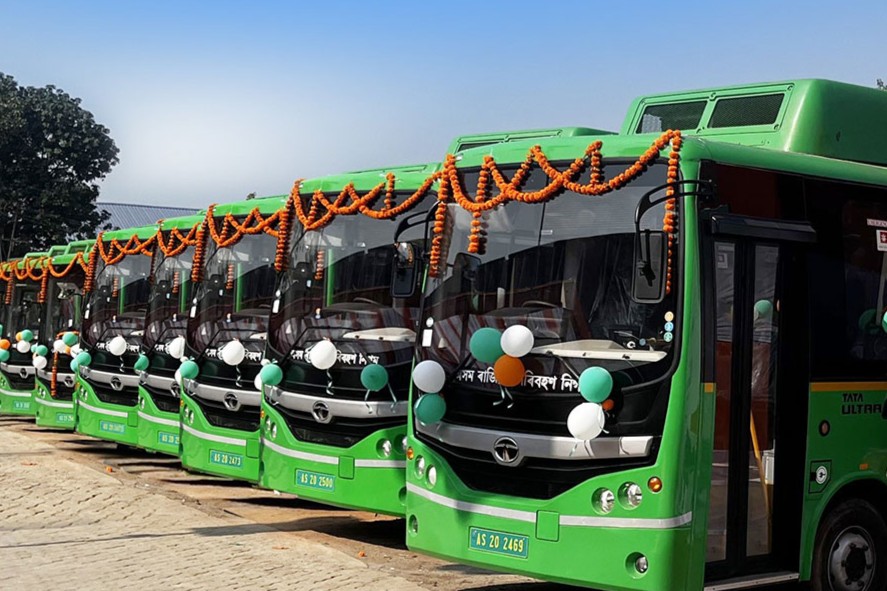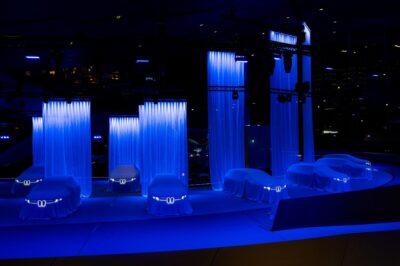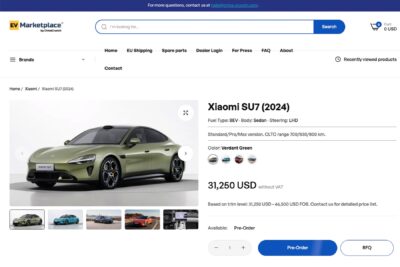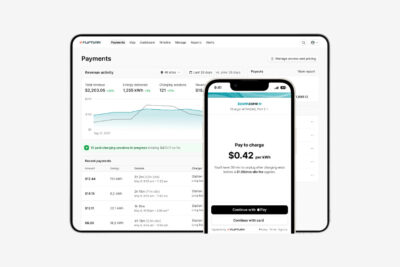India extends PM E-Drive scheme with new revisions
The ministry has extended the scheme’s deadline from 31 March 2026 to 31 March 2028. The original end date remains in place for electric two-wheelers, electric rickshaws and carts, and electric three-wheelers (L5 category). Subsidies will continue for an additional two years only for electric ambulances, electric buses, electric trucks and other emerging EV types, along with public charging stations and the upgrading of testing agencies.
According to MHI, the extension of the PM-DRIVE scheme, which went into force in October of last year, addresses specific market challenges. For electric trucks, the sector remains at an early stage, with full-scale production expected to take more time. Earlier this year, MHI announced that it would allocate roughly 50 million euros to electric trucks under the subsidy programme.
The post-selection process for electric buses is scheduled for March 2026, with subsidies to be released in phases linked to deployment milestones. Upgrading testing agencies will also require extended timelines, from tendering to commissioning. The overall budget for the scheme remains unchanged at 109 billion rupees (1.06 billion euros).
The second amendment significantly reduces subsidies for electric rickshaws and carts, reallocating funds to the electric three-wheeler (L5) category. Initially, the scheme allocated 1.92 billion rupees (18.74 million euros) to support 110,596 electric rickshaws and carts, and 7.15 billion rupees (69.80 million euros) for 205,392 electric three-wheelers. The revised plan covers 39,034 electric rickshaws and carts with 500 million rupees (4.88 million euros), redirecting 1.42 billion rupees (13.86 million euros) to fund 83,417 additional L5 electric three-wheelers, now totalling 288,809 units.
Subsidy rates remain unchanged. For electric rickshaws and carts registered in FY2024–25 (April 2024–March 2025), MHI offers 5,000 rupees (49 euros) per kWh, capped at 25,000 rupees (244 euros) per vehicle. For FY2025–26, this drops to 2,500 rupees (24 euros) per kWh, capped at 12,500 rupees (122 euros). Electric three-wheelers (L5 category) registered from 1 April 2024 to 7 November 2024 qualify for 5,000 rupees (49 euros) per kWh, capped at 50,000 rupees (488 euros) per vehicle, falling to 2,500 rupees (24 euros) per kWh, capped at 25,000 rupees (244 euros) between 8 November 2024 and 31 March 2026.
For both categories, the incentive is limited to the stated amount or 15 per cent of the ex-factory price, whichever is lower. The scheme applies only to models with a maximum ex-factory price of 2.5 lakh rupees (2,441 euros) for electric rickshaws and carts, and 5 lakh rupees (4,881 euros) for electric three-wheelers.
| Category | Units | Subsidies (in rupees) | Subsidies (approx; in euros) |
|---|---|---|---|
| Electric two-wheelers | 24,79,120 | 17.72 billion rupees | 172.99 million euros |
| Electric rickshaws and carts | 39,034 | 500 million rupees | 4.88 million euros |
| Electric three-wheelers | 2,88,809 | 8.57 billion rupees | 83.66 million euros |
| Electric ambulances | TBA | 5 billion rupees | 48.81 million euros |
| Electric trucks | 5,643 | 5 billion rupees | 48.81 million euros |
| Electric buses | 14,028 | 43.91 billion rupees | 428.67 milion euros |
| Public charging stations | 72,300 | 20 billion rupees | 195.25 million euros |
| Testing agencies | NA | 7.8 billion rupees | 76.15 million euros |
| Administrative expenses | NA | 500 million rupees | 4.88 million euros |
| Total | 109 billion rupees | 1.06 billion euros | |
pib.gov.in (Amendment no. 1), pmedrive.heavyindustries.gov.in/ (Amendment no. 2), pmedrive.heavyindustries.gov.in (allocation table before the amendments), pmedrive.heavyindustries.gov.in (original scheme details)





0 Comments